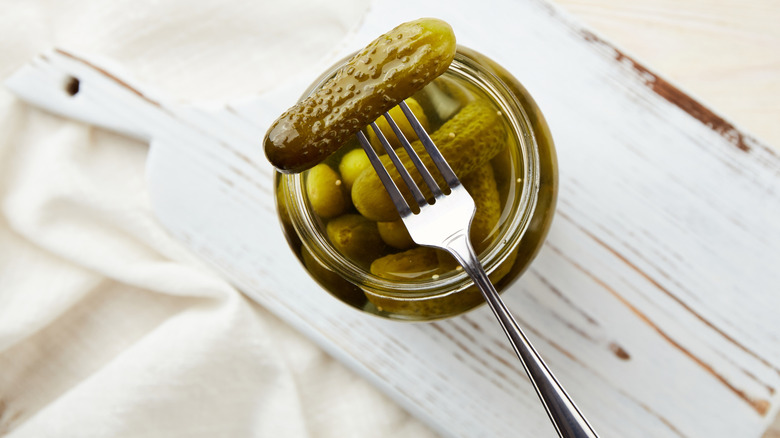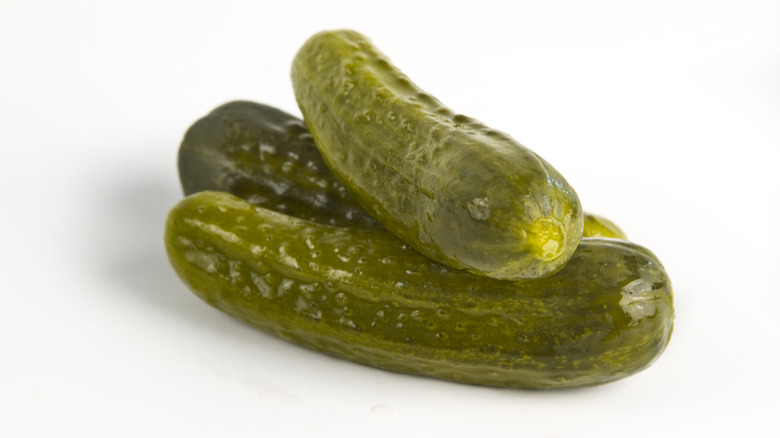Is Connecticut's Infamous 'Pickle Law' A Real Thing?
When it comes to rules about food, any country, region, or city likely has different customs or traditions — and sometimes even enforceable laws. From Singapore's prohibition on chewing gum to France's ban on ketchup at school cafeterias, some laws make sense from a health or sanitary viewpoint. But some food laws seem so out of touch that it's hard to believe they're real.
In the U.S., nearly every state has some peculiar laws about food – or, at least, is rumored to – and Connecticut is no exception. Take it's infamous "law" concerning pickles. Some sources claim that Connecticut law requires pickles to bounce for them to be classified as, well, pickles. But is this actually real? Or is it some kind of accidental (or even intentional) hoax?
Both the Connecticut State Library, as well as the Commissioner of the Connecticut Department of Consumer Protection, have confirmed that there's no real bouncing pickle law. In fact, there are no specific Connecticut laws regarding pickles. But there is a reason for this confusion, and it probably stems from the articles and regulations that mention the incident of pickles that didn't bounce.
The history of Connecticut's bouncing pickle law
The misinformation about Connecticut's bouncing pickle "law" can seemingly be traced to an incident that occurred in 1948. According to an investigation conducted by a Connecticut NBC affiliate, led to two men were arrested for selling pickles that weren't edible, as they were decomposing and maggot-infested. The Connecticut Food and Drug Commissioner at the time mentioned that a good way to test a pickle's viability was by dropping it from a one-foot height. These pickles splattered, whereas good pickles would've bounced. After this story was published by a local paper, it seems that many mistook this guideline for an actual law.
There is also a little science behind this bounce test; any vegetables used to make pickles contain something called pectin, which is the reason that they stay firm and crisp. If pickles are not preserved properly or are exposed to excessive heat, their pectin levels change and the pickles become soft. While edible pickles might not bounce when dropped, they should definitely hold their shape. So if you ever drop a pickle and it splatters all over your floor, while you may not be breaking any laws, it might be best to get a new jar of pickles.

